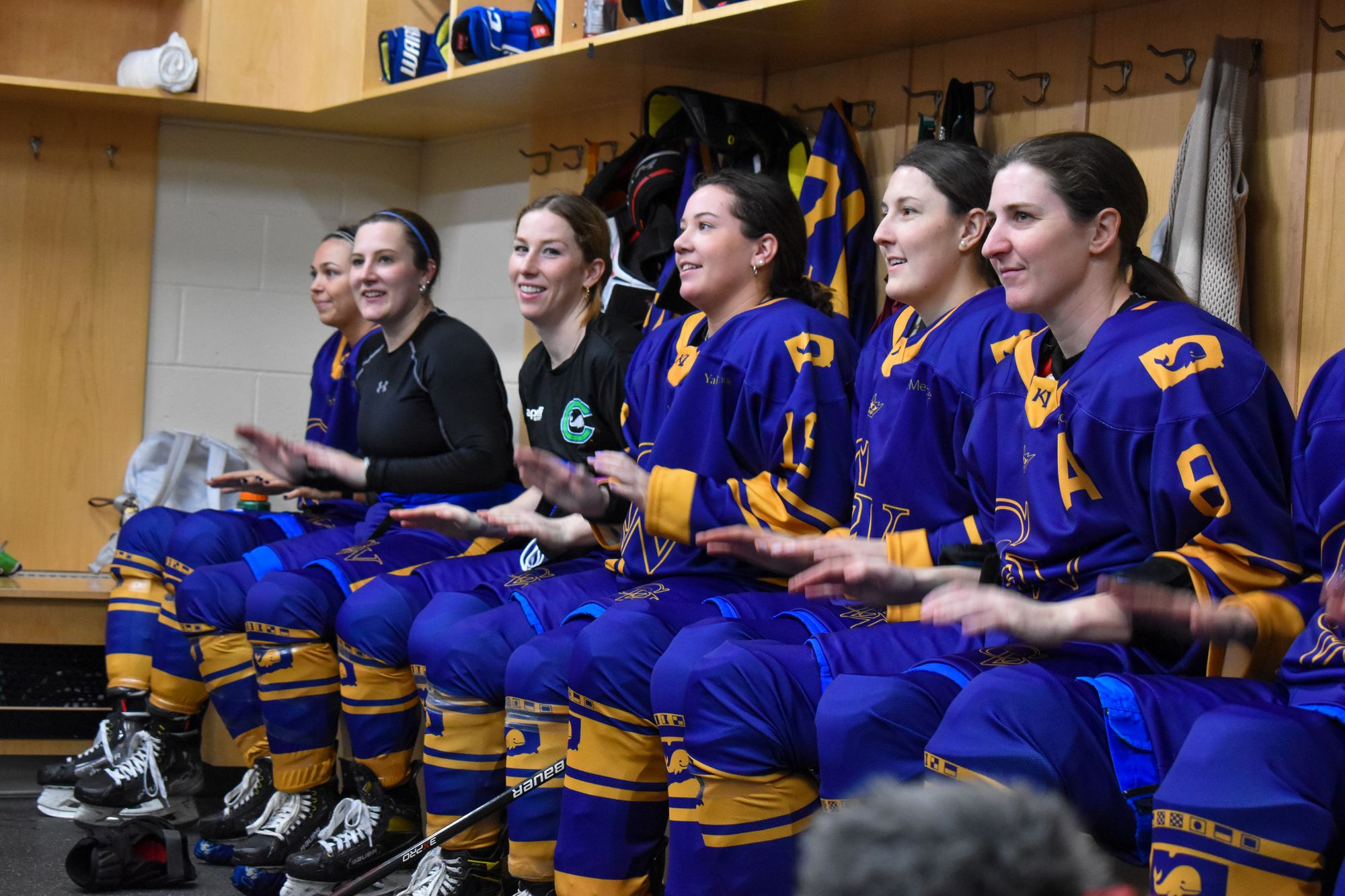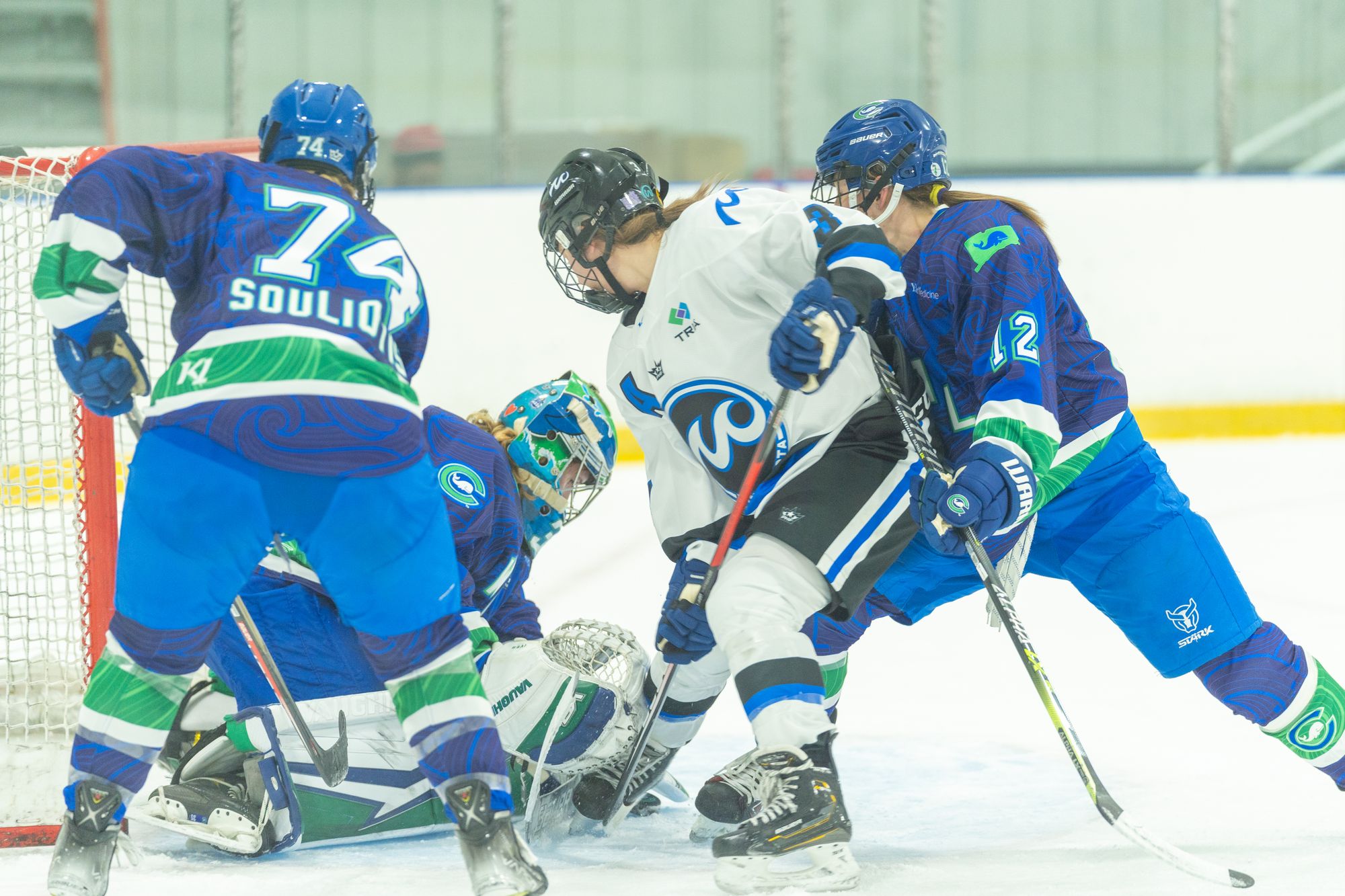Mallory Souliotis Continues the Work for Epilepsy Awareness
Almost four years after meeting an epileptic youth hockey player, Mallory Souliotis continues her advocacy.

'Using my platform' can easily be one of the most cliched terms in hockey, along with 'giving it 110%' and 'getting pucks in deep.' It's easy to roll your eyes, take the words at face value, and move on.
Doing that, however, would be deeply unfair to Connecticut Whale defender Mallory Souliotis and her efforts for epilepsy awareness. It's immediately obvious upon speaking with her that she carries an awareness of both her platform and her privilege, which in turn translates into a deep respect for the very community she advocates for.
Souliotis first spoke with The Ice Garden about her advocacy work back in December 2020. She admitted to being a little surprised at receiving a second overture - after all, she'd done this with us before. Then, I told her my specific reason for wanting to have this conversation: my father was epileptic during his lifetime. I don't remember a part of my childhood where I wasn't aware Dad was different. Epilepsy is personal to me, and Souliotis immediately understood.
It's personal for her, too. As Souliotis recalled to The Ice Garden, she attended the Slap Out Epilepsy hockey clinic in the summer of 2019, where she met an epileptic youth hockey player named Julia. The two forged a connection.
Julia is an incredibly strong and positive girl that continues to inspire me through her fight with Epilepsy. Her battle has had ups and downs and has impacted her ability to play hockey.
— Mallory Souliotis (@yourpalMAL9) December 2, 2020
She is why I’ll be matching and donating all jersey/shirsey sales this season 💜 pic.twitter.com/BXLmln2ILC
For the past few seasons, Souliotis has donated her earnings from jersey and shirsey sales to Epilepsy New England Foundation, and in doing so, has inspired others to join her. She says she gets spontaneous donations: "Other people will match it or donate. They'll Venmo me 10 bucks or whatever to add to the pot, which is great."
According to the Epilepsy Foundation, over 3.4 million Americans live with some form of the condition. There's no universal cause; it can be genetic, or triggered by traumatic brain injury, or have no visible root. The severity and symptoms vary from person to person and while there's no cure, symptoms can be controlled or reduced with medication. Epileptic individuals can live full productive lives, but there's no denying it takes a toll on both the person and those that love them.

Seeing this firsthand, both as a child when she played hockey with an epileptic boy on her team and later with Julia and her family, has opened Souliotis's eyes to this reality. As she told The Ice Garden, "Yes, it affects the person the most, but obviously the financial, the medical, the care, and the worrying...they're always worrying."
While the broader popular and scientific knowledge of epilepsy has come a long way in just the past 100 years alone, mystery and stigma persist. The condition once believed to have been caused by demonic possession is still hindered by lack of understanding and the popular depiction of epileptic people in media where someone onscreen has a seizure and falls to the floor twitching is often far removed from reality.
Everyone, Souliotis included, has seen it: "A lot of that's also depicted in all of your medical dramas," she said. "Mainstream media will portray like, oh, someone has a seizure, and someone miraculously saves them or helps them...you say 'seizure' and you picture somebody on the ground."

One side effect of her advocacy work has been correcting her own misconceptions of the condition. "Before I got so much more involved with epilepsy, I thought people have multiple seizures a day. And that was normal, that was the thing. Obviously now with better medications, technologies, and other advances, they don't happen as often, and that's great."
Souliotis says she's learned much more about how people with epilepsy not only live their lives, but thrive in doing so. Julia, the hockey player who first inspired her, still plays the game they both love. "She's battling through. She's like, 'I'm not going to let epilepsy take away hockey. I'm still going to play.'"
My why @OutEpilepsy 💜 https://t.co/IIFHU9cSnt
— Mallory Souliotis (@yourpalMAL9) January 6, 2023
Since their initial meeting back in 2019, Souliotis has kept in touch with Julia and her family, through the COVID-19 pandemic and beyond.
"I would have liked to have brought the [Isobel Cup] over when I had it," she told The Ice Garden, "but it just wasn't worth it to them, and I would never be able to live with myself. So it's still on my list of things to do, when the time comes."





Comments ()